A Guide for Auto Accident Patients
Auto accidents can cause an array of injuries, including head trauma. One of the most common and unsettling effects of head trauma is memory loss. Memory loss can be temporary or permanent and can range from mild forgetfulness to complete amnesia.
If you have suffered a head injury in an auto accident and are struggling with memory loss, you are not alone. In this blog post, we will discuss coping strategies cognitive exercises and treatment options that can help you after a head injury.

Memory and Traumatic Brain Injury
Memory issues are a common after-effect of traumatic brain injuries (TBIs), impacting a person’s ability to learn and remember new information. The brain regions responsible for memory and learning can be affected by the injury, leading to cognitive impairments that can significantly disrupt daily life.
Two types of memory loss can occur after a TBI: retrograde amnesia, where a person has difficulty recalling events that happened before the injury; and anterograde amnesia, where a person struggles to create new memories after the injury.
Most frequently, individuals experience short-term memory loss, affecting memories of events or information from about 30 minutes prior. This can pose challenges in remembering new information and events, hindering recovery.
Research over the past few decades has also indicated a link between moderate to severe TBIs and an increased risk of cognitive decline or dementia years after the injury. This suggests the effects of a TBI on memory can be long-lasting and might even worsen over time.
However, it’s important to remember that some memory problems may improve with time. With appropriate support and strategies, such as using memory aids, creating routines, repetition, maintaining a healthy lifestyle, brain training, relaxation techniques, and professional help, individuals with TBIs can manage their memory issues and enhance their cognitive function.
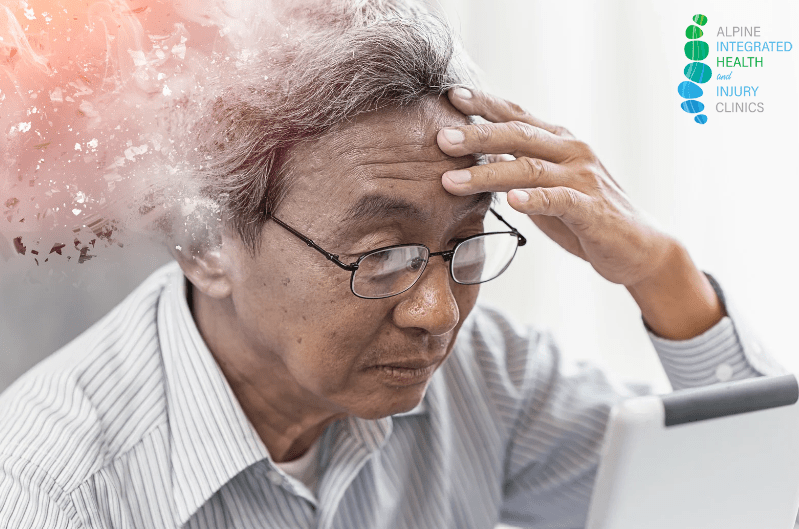
Mild Traumatic Brain Injury
Mild traumatic brain injuries (TBIs), also known as concussions, are currently a hot topic of discussion in the medical community and beyond. According to recent updates, even mild concussions can cause long-term effects on the brain. These injuries can result from a blow or jolt to the head, often occurring due to falls, sports injuries, or accidents.
The symptoms of a mild TBI can range from mild to severe, depending on the extent of the damage to the brain. Individuals might remain conscious or experience a loss of consciousness for a short period. Persisting issues can include headaches, dizziness, fatigue, memory problems, attention deficits, mood swings, and depression.
Recent research has shown that almost half of people with a concussion still show symptoms of brain injury six months later, underscoring the lasting impact of even a mild TBI. This is a significant finding as it highlights the potential long-term effects of concussions that many may underestimate.
Exciting developments in the field include the use of ketamine to aid recovery after a TBI. This novel approach could potentially help children heal after such injuries, opening up new avenues for treatment and recovery.
Moreover, a new study exploring the behavioral and emotional difficulties following pediatric mild TBIs has been published recently. This research could shed light on the specific challenges faced by children recovering from mild and severe TBI`s and guide future strategies for therapy and for support groups.
The ongoing research and updated findings in the field of mild TBIs are contributing to a greater understanding of these injuries.
They’re helping to inform better treatment approaches, policy decisions, and public awareness about the seriousness of mild TBIs. It’s an evolving area with much more to learn and discover, but the current focus and investment in research are promising signs for future advancements.
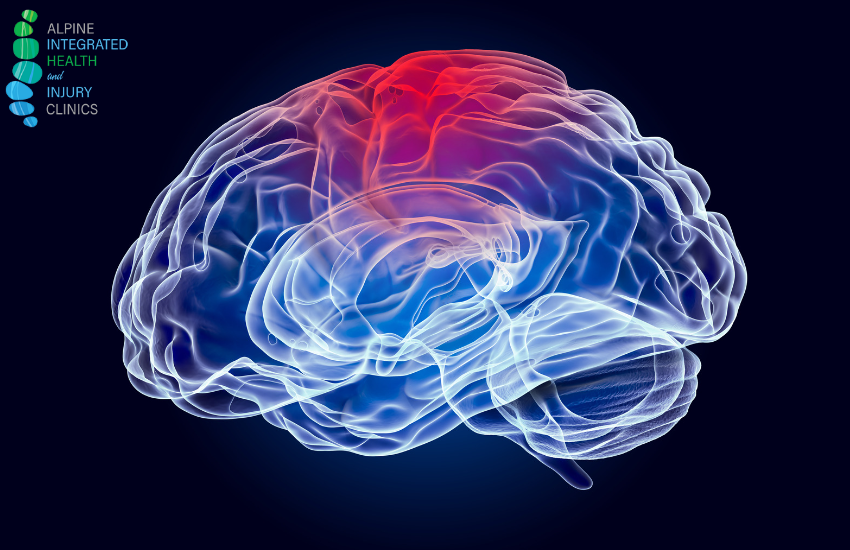
Relaxation Techniques to Reduce Memory Problems after a brain injury
Relaxation techniques can help significantly improve memory. Here are a few methods:
Breath Focus: This simple technique involves deep, slow breathing and letting go of distracting thoughts and sensations. It’s a straightforward way to reduce stress and anxiety.
Body Scan: This method combines breath focus with progressive muscle relaxation. After deep breathing for a few minutes, focus on one part or group of muscles in your body at a time, releasing any tension you feel there.
Guided Imagery: This technique involves creating mental images to take a visual journey to a tranquil, calming place or situation.
Mindfulness Meditation: This practice involves sitting comfortably, focusing on your breathing, and keeping your mind’s attention in the present moment without drifting into concerns about the past or future.
Yoga, Tai Chi, and Qigong: These ancient arts combine rhythmic breathing with a series of postures or flowing movements. The physical aspects offer a mental focus that can help distract you from racing thoughts.
Animal-assisted Therapy: Interacting with animals can be cognitive therapy and help calm and soothe those dealing with memory problems.
Massage: Physical touch can help reduce stress and promote relaxation, which in turn may aid memory function.
Music Therapy: Listening to or playing music can stimulate emotional responses, facilitate relaxation, and distract from stressful stimuli.
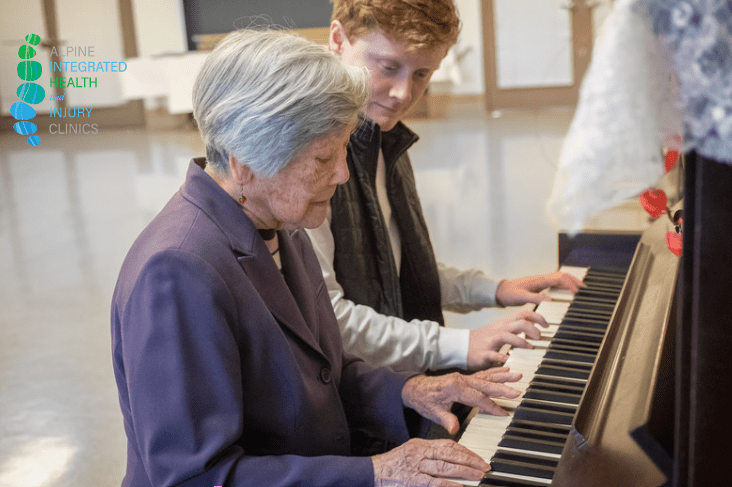
Establishing a Routine to Aid Memory Recovery
Routines provide a sense of structure and familiarity, which can be incredibly beneficial for those experiencing memory issues. Here’s how you can create a routine to aid in memory recovery:
Keep a Regular Sleep Schedule
Sleep is crucial for memory consolidation. Try to keep a consistent sleep schedule, going to bed and waking up at the same time each day. This can help regulate your body’s internal clock and could potentially improve your memory.
Healthy Eating Habits
Maintaining a balanced diet rich in fruits, vegetables, lean proteins, and whole grains can benefit brain health. Regular meals can also help structure your day.
Regular Exercise
Physical activity increases blood flow to the whole body, including the brain, which can help boost cognitive function. Try to incorporate some form of exercise into your daily routine.
Mental Stimulation
Keep your mind active with puzzles, reading, writing, or other mentally stimulating activities. These can be scheduled into your daily routine to keep your brain engaged.
Social Interaction
Interacting with others stimulates our brains, and social activities can be a great way to break up the day. These could be scheduled phone calls, visits from family members, or participating in group activities.
Medication Management
If you’re on medication, taking it as prescribed is essential. Consider setting reminders for taking your medications.
Use of Memory Aids
Memory aids like calendars, alarm clocks, or apps can help manage daily tasks and remember important dates or events. Incorporate these tools into your routine for better memory management.
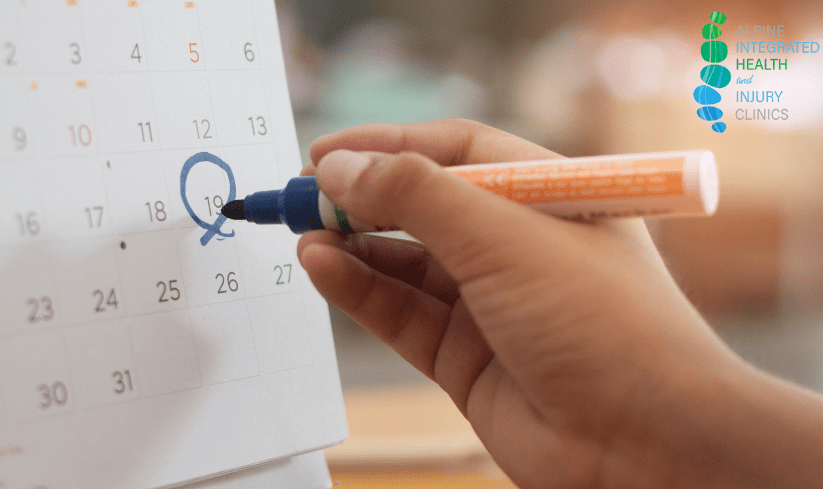
What can people with TBI do to improve communication?
People with Traumatic Brain Injury (TBI) can face various communication challenges, such as difficulty finding words, speaking fluently, and understanding others. Here are some strategies that can help improve communication:
Speech Therapy: A speech-language pathologist (SLP) can provide tools and techniques to improve speech and language skills, cognitive-communication skills, and swallowing disorders.
Use Assistive Technology: Devices like smartphones, tablets, or specialized software can be used to aid communication. For example, text-to-speech apps can help those who have trouble speaking.
Practice Active Listening: Pay close attention to what others are saying, ask for clarification if needed, and repeat back information to ensure understanding.
Visual Aids: Use pictures, diagrams, or written instructions to supplement verbal communication.
Create a Quiet Environment: Reducing background noise can make it easier to focus on the conversation.
Take Breaks: Fatigue can exacerbate communication and cognitive difficulties, so it’s important to rest and not push too hard.
Patience and Understanding: Communication difficulties can be frustrating. It’s important to remain patient, both with oneself and with others.

Modifying the Environment for Memory Support
One of the most effective strategies to assist individuals with memory difficulties is to tailor their environment in a way that minimizes reliance on memory. Here are some practical suggestions on how to do this, which have proven beneficial for others:
-
-
-
- Maintain a notepad next to the phone to jot down phone calls and messages.
-
- Utilize a noticeboard to display essential information.
-
- Designate specific spots for crucial items like keys, wallets, or glasses, and ensure they are returned to the same spot each time.
-
- Secure important items to your person to prevent misplacement, such as using a neck cord for reading glasses.
-
- Label cupboards and storage containers to remind you where items are stored.
-
- Mark perishable food items with the date they were opened.
-
- Paint the bathroom door a unique color to make it easier to locate.
-
- Label doors to serve as reminders of the purpose of each room.
-
-
Exercise and its Impact on Short-Term Memory Recovery
Exercise is widely recognized for its beneficial impact on cognitive abilities, including the enhancement of short-term memory recovery.
Studies have indicated that both moderate and high-intensity workouts can bolster the ability to retain and recall information in the short term. In animal models, high-intensity exercise has been linked to increased excitatory activity, which could potentially lead to improved long-term memory.
Additionally, regular physical activity can transform the brain in ways that boost memory and thinking skills. This transformation is achieved by reducing insulin resistance and inflammation, along with stimulating the release of growth factors that promote brain cell health.
Interestingly, even a single workout session can improve the fitness of our brain’s memory centers, much like how physical and aerobic exercise often benefits our muscles. A brief rest period post-workout might also enhance memory functions.
Furthermore, physical exercise seems to significantly impact working memory, particularly in older adults.

Multiple Studies around social activities and memory loss recovery
Engaging in social activities is a recognized method for aiding short-term memory loss recovery. Research has indicated that social interaction can have beneficial effects on brain function, including short term memory problems.
According to a study available on the National Center for Biotechnology Information (NCBI), physical and intellectual activities combined with socialization can improve specific memory functions over time, especially when applied in the early stages of memory loss.
In another study focused on Alzheimer’s patients, it was found that social interaction could help recover memory deficits by increasing the expression of Brain-Derived Neurotrophic Factor (BDNF), a protein that supports the survival of existing neurons and encourages the formation of new synapses.
In conclusion
Coping with memory loss after a head injury can be a challenging journey, but it’s not insurmountable. It’s essential to seek immediate professional help, regardless of the severity of the injury. A healthcare provider can offer practical strategies and comprehensive rehabilitation programs tailored to your specific needs.
Additionally, assistive technology can provide significant support, from basic tools for organization to advanced devices that compensate for lost abilities. Remember, early consultation and treatment can significantly improve outcomes. While the road to recovery may be long, these resources and strategies can make it more manageable and lead to an improved quality of life.
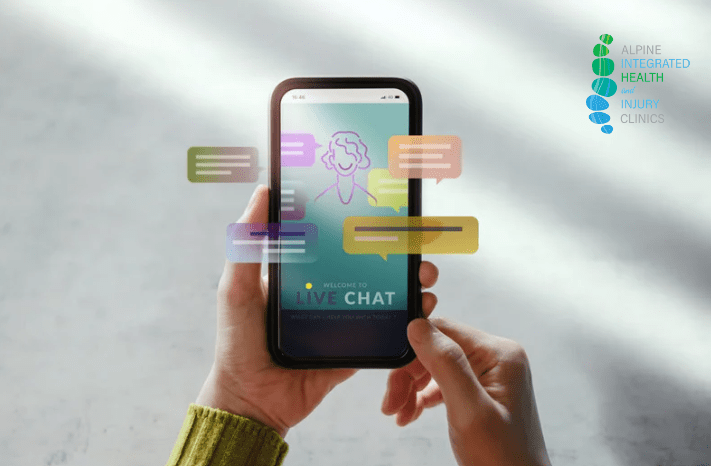
Frequently Asked Questions: Coping With Memory Loss After a Head Injury
What can cause memory loss after a head injury?
Memory loss following a head injury can be attributed to numerous factors, largely depending on the severity and location of the injury.
One common cause called post traumatic amnesia is a traumatic brain injury, which often leads to confusion and an inability to form new memories for a period after the incident. This kind of memory loss that occurs from the moment of the injury onwards.
Another type of memory issue is anterograde amnesia, where the person struggles with memory problems regarding information learned after the injury. Damage to certain areas of the brain, such as the frontal lobe, can lead to these types of memory dysfunction.
Studies have also associated moderate and severe traumatic brain injuries with an increased risk of cognitive decline or dementia, even years after the original head injury. Some research has suggested that even a single head injury could potentially lead to dementia down the line.
Other symptoms related to head injuries, like concussions, can also impact memory. These include effects on judgment, reflexes, speech, balance, and muscle coordination. Concussions can lead to long-term and recurring short-term memory loss, even weeks, months, or years after the trauma.
Can stress affect memory after a head injury?
Yes, stress can indeed affect memory after a head injury. According to a study from the National Center for Biotechnology Information, mild traumatic brain injury (mbTBI) can result in chronic neurobehavioral changes such as increased anxiety and memory issues1.
Stress is a natural reaction when a major change occurs, and its impact can be much greater following a brain injury. Post-injury, individuals may experience significant emotional effects, including feelings of loss, anger, increased levels of depression, and anxiety.
Additionally, certain factors can exacerbate memory problems after a brain injury. These include lack of sleep, poor health, side effects of some medications, stress, or illness.
The stress and emotional changes that often accompany a traumatic brain injury can lead to frustration and dissatisfaction with life, further affecting an individual’s cognitive abilities, including memory.
Should I seek professional help if I’m experiencing memory loss after a head injury
If you’re experiencing memory loss after a head injury, it’s crucial to seek professional help. It might be an indication of a traumatic brain injury (TBI). The duration of this post-traumatic amnesia can vary widely, from a few minutes to several weeks or even months.
Healthcare professionals can provide practical strategies to manage memory problems after a brain injury. If your memory issues are due to a concussion, a comprehensive concussion rehabilitation program can significantly improve your condition, possibly even resolving the memory problems entirely.
Immediate medical attention is necessary if you experience any symptoms such as a loss of or change in consciousness. Even mild head injuries should be evaluated immediately by a healthcare professional.
Memory problems can also signal other conditions, like Alzheimer’s disease. Therefore, it’s essential to consult with a healthcare provider for an accurate diagnosis and appropriate care. Early consultation and treatment can significantly improve the outcome.
Can assistive technology help with memory loss after a head injury?
Assistive technology can indeed play a significant role in helping individuals dealing with memory loss after a head injury.
These technologies range from simple tools to more complex devices, all designed to help manage the effects of traumatic brain injuries.
For example, even something as basic as a notebook can be used for organization and memory tasks. There are also more advanced technologies that can help compensate for lost or reduced abilities due to a brain injury.
Assistive Technologies are important in rehabilitation, community living, education, and employment for people who have survived traumatic brain injuries. They can make daily activities easier and enhance quality of life.
There’s a variety of devices available that can assist those with a brain injury. For instance, speech-generating devices can aid in communication. Other adaptive equipment like scooters, wheelchairs, walkers, and canes can assist with mobility.
